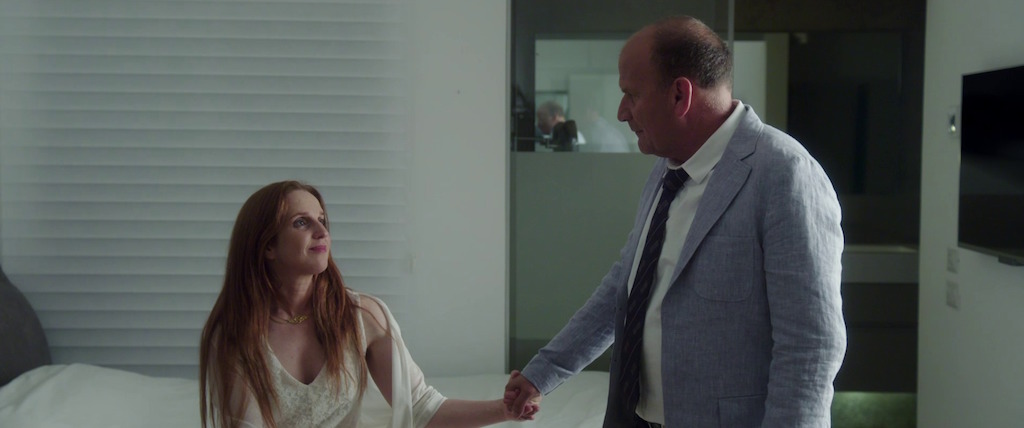How do you tell your wife that you’re going to leave her? There’s no easy way, really. Pick a date. Follow through. Hopefully, it won’t coincide with your surprise 25th anniversary party, or you might end up like the couple in this film, renewing their vows before taking the first steps to dissolving their marriage. Vows shows us how two people process a life-changing event by focusing on the event from two different perspectives.
Vows tells the story of Amos and his wife Orit. He plans to leave her; she’s excited about their anniversary and unaware of his unhappiness. As could be expected, the conversation is awkward. As a whole, the film is an exquisitely ironic portrayal of a middle-aged breakup that deals with an excruciating experience without making much of a fuss. There aren’t any heated arguments, public meltdowns, or accusations of adultery; instead, Amos and Orit’s night is filled with whispers, glances, and words left unsaid, as the situation is handled–as it must be–with discretion. They’re both forced to smile through the pain, lest their friends and family find out what’s wrong.
Vows plays with point of view to great effect. While Amos starts the film laughing in a car with his lover, Orit ends the film onstage, listening to her husband’s wedding vows with quivering lips. After she learns the truth (at the halfway mark), the film takes on the tone and silence of shell shock–minus the heartbeat that tends to accompany the effect. In short, it’s a private crisis in a public place, and as such, the couple isn’t able to say much to each other. But what they don’t say communicates volumes about the state of their relationship.
Though this film is written from the perspective of both husband and wife, it was actually written by the son, who based it off a true story about his parents’ silver wedding party. “When I started talking with them about their silver-wedding, I found out that my father had originally planned to tell my mother about his decision to leave her that weekend,” writes Tal Miller, the film’s screenwriter. “That big celebration we planned for them became the symbol for the failure of their marriage.” Director Tal Zagreba had a surprise of his own in store for the film crew: at the last moment, he decided that each scene would be filmed as a single take, and those slow, tracking shots are a large part of why this film is so successful. The camera refuses to blink, and it zeroes in on its two main characters as they walk towards the end, like two halves of a broken heart, hoping nobody sees the glue that holds them together.

 Adam Banks
Adam Banks